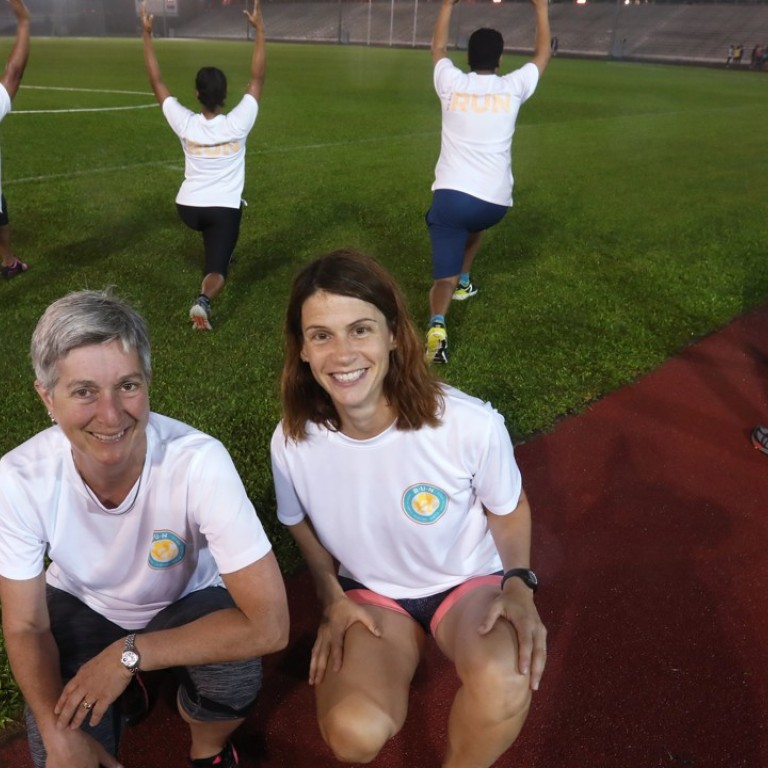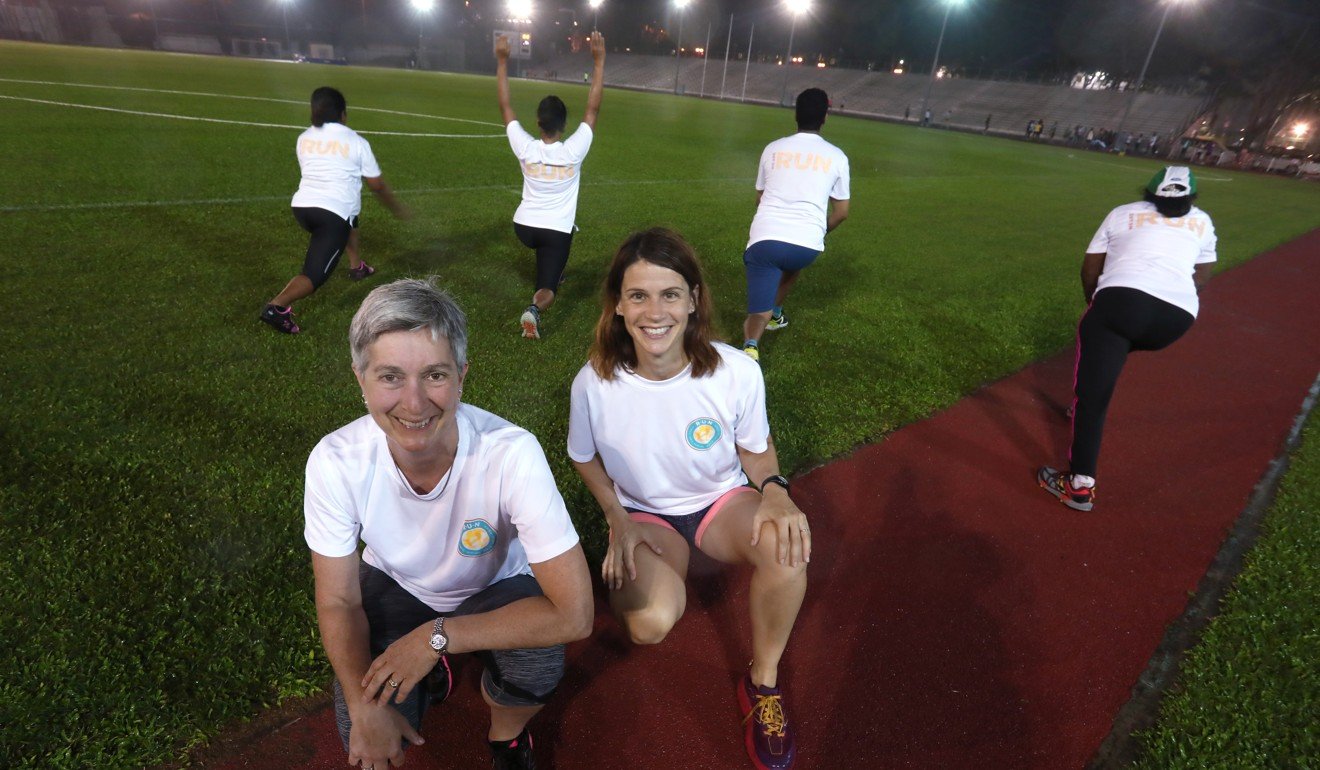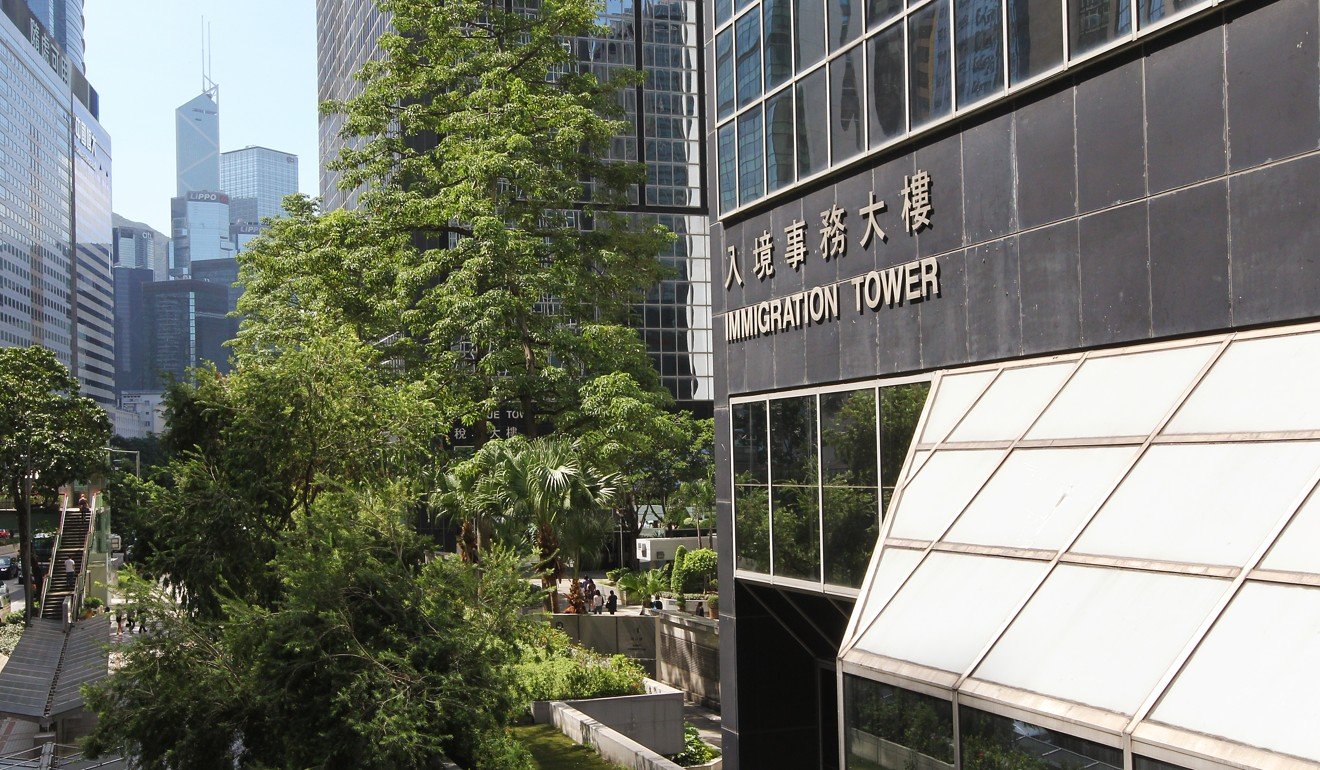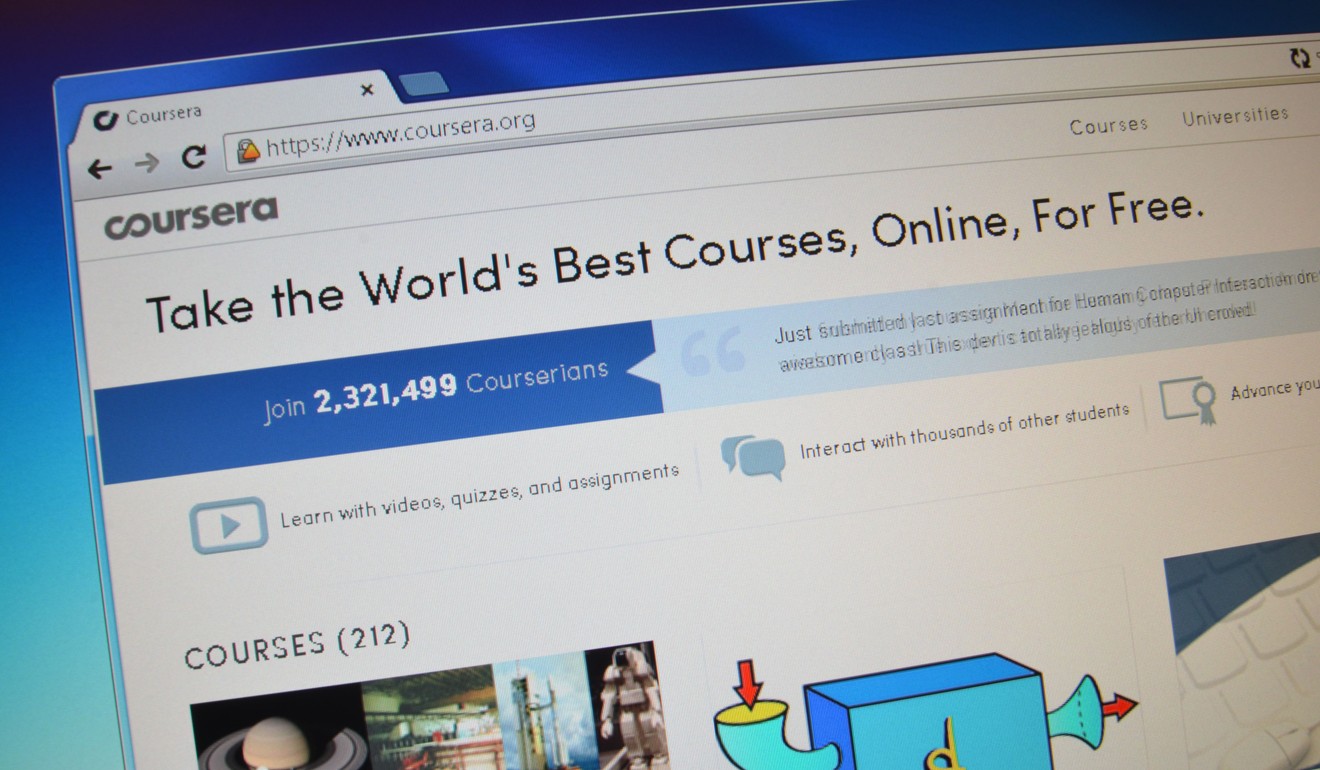
How Hong Kong refugees’ running club Run offers relief from traumatic memories and uncertain future
Refugees in Hong Kong face a hard life and uncertain future as they await recognition of their status before heading off to a third country to be settled. We talk to members of Run, a non-profit group that aims to rehabilitate them through treks, runs, training and by offering online study opportunities
Surrounded by hills on three sides, the Aberdeen Sports Ground is one of Hong Kong’s more picturesque public sports facilities. Its floodlit tracks are buzzing with activity on a warm spring evening as a large group of runners sweat it out under the lights.
The men and women wearing the same white T-shirts are part of a social running club gathered for a weekly meet. It differs from other such clubs in one key respect: the runners are all refugees and asylum seekers from conflict torn parts of the world. They have taken temporary refuge in Hong Kong, having fled their home country due to war, violence or fear of persecution.
Discrimination exists in Hong Kong, but openness to refugee children is a bright spot
They live under constant uncertainty as they await formal accreditation of their legal status as refugees and the suspense of the subsequent rehabilitation in an unknown new country. Yet, as they run and train together, they are able to forget the trauma of the past and uncertainty of the future.
The meet has been organised by Run, a non-profit group that rehabilitates refugees living in Hong Kong through running, outdoor exercise and education.
Run was originally affiliated with Free To Run, which human rights lawyer and ultrarunner Stephanie Case set up in the US in 2014. Its aim was to use running and physical exercise to empower and educate women and girls affected by war and conflict.
“Two years ago, Stephanie asked me if I could organise a hike for a group of refugee women living in Hong Kong,” says Virginie Goethals, Run’s director and programme head, who is a qualified lawyer and an ultrarunner herself.
It was very difficult in the beginning. A new place, no income and two children to take care of. I was lonely and depressed. I found that first hike to be really invigorating and I met people who were facing problems like me
“I thought it was a one-time request and took 20 refugee women hiking on the Morning Trail close to The Peak. Most had never set foot on a trail before, but loved being outdoors and meeting others like themselves. At the end of the hike, one of them said to me, ‘See you again same time next week’. I did not have the heart to say no, and that is how we started in Hong Kong.”
The hikes led to “Hiking to Heal”, weekly treks for women refugees over the Hong Kong trails.
Sophia (not her real name) started hiking with the group. In her late 30s, she had fled her home country in Africa for fear of political persecution. Hong Kong was one of the few countries that was able to give her a visa on arrival, making it possible for her to seek shelter here.
On World Refugee Day, Hong Kong asylum seekers talk about how hiking has helped them regain their confidence and improve their health
“It was very difficult in the beginning. A new place, no income and two children to take care of. I was lonely and depressed,” Sophia says. She had heard about Run from the Justice Centre Hong Kong, an NGO that offers free legal advice to refugees and asylum seekers.
“I had never trekked before, but was happy at the chance to get out of my cramped room. I found that first hike to be really invigorating and I met people who were facing problems like me. Slowly but surely I made friends and found a support group.”
Run’s co-founder Brenda Sawyer is also an avid hiker, who believes that hiking and running are extremely empowering.
“Refugees, particularly, female refugees, don’t get the chance to access much physical activity in Hong Kong. It’s usually the women who have to be home with the children, or are here as single parents or who, for cultural or language reasons, find it difficult to access public spaces,” Sawyer says.

Last April, Sophia ran her first 30km race, the Country of Origin event over the hills of Lantau Island. When asked how she was able to progress from not running at all to running a 30km race in just a year, Sophia pauses.
“Hiking and running built my stamina over a period of time and I felt up to a challenge when Run suggested I participate in the race. It was hard. I felt like giving up many times, but the volunteers running alongside kept urging me to keep moving forward,” she says. “I am so glad I didn’t give up. Finishing the race has given me new-found confidence. I feel that I can set any goal and achieve it.”
The healing powers of exercise for women refugees in Hong Kong
Goethals takes satisfaction in seeing the transformative effect physical activity has on the group.
“Running makes them stronger, physically as well as mentally. And then they come to me and say, ‘What’s next?’ They are ready to look life in the eyes again and look at the future.”
George (not his real name) has a story similar to Sophia’s. A university graduate and a government employee in Africa, he also fled in fear of political persecution. He arrived in Hong Kong three years ago.
“The uncertainty of where I am going to land, spending all my time worrying about the future is a terrible feeling,” he says, adding running helps him cope. “It has given me something to look forward to. I forget my problems when I run.”

Eating like a Hong Kong refugee: teacher lives on HK$40 food a day for charity
“What makes it harder still is that society looks down on refugees. The perception is that they can only do menial jobs, which is not true,” says Goethals. “Most of the refugees are educated, skilled and can contribute to society.”

“He guided me on my assignments and shared his experience of working in the industry,” says George.
Code for success: Hong Kong computing school trains refugees to work in IT
After approaching several companies on the pair’s behalf, a bank is now going through the necessary steps to be able to offer Sophia and George entry-level jobs. As refugees are not allowed to work in Hong Kong, potential employers must seek special authorisation from the director of immigration who may grant work permits for three to six months that must be renewed.
Run has refined its mission. R stands for rebuilding the physical and mental health of the refugees; U is for uniting the refugees with the local community and N stands for nurturing the refugees through education
“Finding an employer who is patient and understanding of this lengthy and cumbersome process can be time consuming, and refugees have no network to access potential employers,” Goethals says.
“Sophia and George are lucky, and for them there is hope of a new beginning. They both have the capability to move up to more senior positions quickly.”
In March 2018, ‘Free to Run’ Hong Kong became independent from its US counterpart and rebranded as Run to focus solely on working with refugees.
“Run has refined its mission. R stands for rebuilding the physical and mental health of the refugees; U is for uniting the refugees with the local community and N stands for nurturing the refugees through education,” says Sawyer.
For Sophia and George, and other refugees who are bravely rebuilding their lives, the call to run kick-started their will to fight and gave them the confidence to take adversity in stride.
For more information visit runhk.org.

